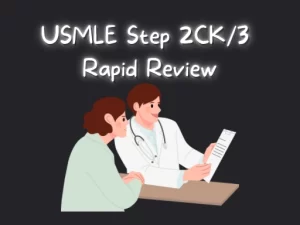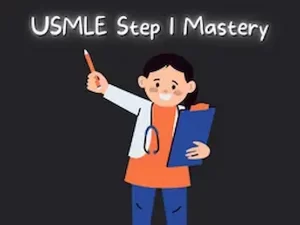Residency Match Day is a significant event for medical students across the United States. This day marks the culmination of a long and often stressful journey toward securing a residency position in a chosen specialty. The match day process for residency determines where medical graduates will spend the next few years of their lives, undergoing specialized training. For many, it is a day filled with excitement, anxiety, and anticipation, as they wait to find out which program has accepted them.
On Residency Match Day, students receive their match results, revealing which residency program they will join. This day is not just a milestone for individual students; it’s also a pivotal moment for residency match programs, as they welcome new trainees into their ranks. The emotions surrounding this day can be overwhelming—joy for those who match and uncertainty for those who do not. Understanding the Residency Match Day process can help alleviate some of the anxiety surrounding this event. This post will explore what the residency match is, how the match process works, and how to prepare for Residency Match Day in 2025.
Whether you are a medical student preparing for this life-changing event or just curious about the process, this guide will provide valuable insights into the intricacies of Residency Match Day and its significance in a medical career.

What is the Residency Match?
The residency match is a process that helps medical students secure a residency position in their chosen specialty after completing medical school. This system is designed to match students with residency programs based on their preferences and the program’s needs. The match is coordinated by the National Resident Matching Program (NRMP), which plays a crucial role in facilitating this process.
Key Features of the Residency Match:
- Centralized System: The match is a centralized process that allows students to apply to multiple residency programs simultaneously, streamlining the application experience.
- Ranking System: After interviews, students rank their preferred residency programs, while programs also rank candidates. This mutual ranking forms the basis of the match.
- Equal Opportunity: The residency match ensures a fair process for all applicants, regardless of their medical school or background.
- Specialties Available: A wide range of specialties is available, from family medicine to surgery, allowing students to find the best fit for their interests and career goals.
Understanding the residency match is essential for students, as it significantly impacts their medical careers.
Interviews and Ranked Voting
- Interviews: Residency match day begins after interviews with residency programs. These interviews give both applicants and programs a chance to assess each other. Applicants typically visit several hospitals or clinics to meet faculty, staff, and residents, which helps them evaluate whether the program aligns with their career goals.
- Ranking the Programs: After interviews, applicants rank the programs they are most interested in, while residency programs rank applicants based on their preferences. This ranked voting system allows applicants to list their top choices and residency programs to select their top candidates.
- Ranked Lists: These ranked lists are then submitted to the National Resident Matching Program (NRMP), which uses an algorithm to match applicants with programs. This process is crucial for determining which residency programs applicants will be placed into.
- Match Process Review: The match rate for residency depends on how well applicants rank programs and how competitive the field is. Applicants can be matched with their top choice, but the system is based on availability and ranking.
How Does the Medical Residency Match Work?
- Application Submission: The match day process for residency starts when medical students submit their applications to residency programs. This application typically includes academic transcripts, letters of recommendation, personal statements, and standardized test scores.
- Interviews and Ranking: Following the application submission, medical students interview with residency programs. Afterward, students rank the residency programs they wish to join, and residency programs rank their preferred candidates.
- Match Algorithm: The ranked lists from both applicants and residency programs are submitted to the NRMP, which uses a computer algorithm to pair applicants with programs. The match rate for residency is influenced by how competitive the field is and the availability of positions in specific specialties.
- Match Day: Match day is the final event, where applicants learn which program they have been matched with, determining the next phase of their medical training.
Understanding the Match System
Understanding the match system is essential for students participating in the residency match. Here are some key components:
- Match Algorithm: The NRMP uses a complex algorithm to ensure that matches are as fair as possible. It accounts for students’ preferences and programs’ rankings, striving to maximize satisfaction for both parties.
- Communication: The NRMP communicates important dates, deadlines, and requirements through their website. Staying informed is vital for applicants.
- Eligibility: Certain eligibility criteria must be met to participate in the match, including graduation from an accredited medical school and passing required exams.
- Specialty Considerations: Each specialty has different levels of competitiveness, which can affect a student’s chances of matching. It’s essential for applicants to research their chosen fields and understand the match rate for residency in those areas.
Understanding these aspects of the match system can help students navigate the residency application process more effectively. By familiarizing themselves with the Residency Match Day process and requirements, they can set themselves up for success.
In 2025, When Is Residency Match Day?
In 2025, Residency Match Day will take place on March 21. This date is a pivotal moment for thousands of medical students across the country, marking the culmination of a year-long process of applications, interviews, and preparation. On this day, students will eagerly open their results, revealing which residency programs have accepted them.
In anticipation of Residency Match Day, students should stay focused and continue preparing for the final steps of the match process. This includes finalizing their rank lists and ensuring that all application materials are submitted on time. The days leading up to the match can be filled with a mix of excitement and anxiety as students reflect on their journey through medical school and look forward to the next chapter of their careers.
Marking Residency Match Day on your calendar is a great way to prepare for the upcoming events of match week. The anticipation surrounding this day can be both thrilling and nerve-wracking, but understanding what to expect can help ease some of the stress.
2025 Match Week Schedule
The 2025 Match Week schedule is essential for applicants to keep in mind as Residency Match Day approaches. Here’s what to expect during this critical week:
- March 17, 2025 (Monday): The match week begins. Students should finalize their rank lists and ensure all application materials are in order.
- March 19, 2025 (Wednesday): This is the final day to submit rank order lists for the match. Students must ensure they have ranked their preferred programs correctly.
- March 21, 2025 (Friday): Residency Match Day. Students receive their match results, revealing where they will begin their residency training.
- Post-Match Activities: After Residency Match Day, students may need to complete various tasks, such as securing housing and preparing for their new roles as residents.
Being aware of this Residency Match Day schedule helps applicants plan their time and responsibilities leading up to the big day. Proper preparation can ease anxiety and ensure that students are ready to embrace the challenges and opportunities that lie ahead.
How to Prepare for Match Day
Preparing for Residency Match Day involves several important steps. Here’s how to get ready:
- Finalize Rank Lists: Make sure to complete and submit your rank list before the deadline. Double-check that you’ve ranked programs in the order that aligns with your preferences.
- Stay Informed: Keep up with the NRMP and program-specific announcements to ensure you are aware of any last-minute changes or requirements.
- Plan Your Day: Decide how you will receive your match results. Whether you choose to do it alone or with friends and family, having a plan in place can help ease anxiety.
- Manage Expectations: Understand that the match process is competitive. Regardless of the outcome, remember that you have worked hard to get to this point in your career.
- Self-Care: In the days leading up to Residency Match Day, take care of yourself. Make sure to rest, eat well, and find time for activities that help you relax.
Preparation for Residency Match Day not only involves logistical tasks but also mental and emotional readiness. By taking these steps, students can approach the day with confidence.
What Should I Do After Match Day?
After Residency Match Day, there are several important actions to take:
- Celebrate: If you matched, take the time to celebrate your achievement with friends and family. It’s a significant milestone in your medical career.
- Accept Your Match: Follow any instructions provided by your matched residency program to officially accept your position. This may include signing documents or submitting forms.
- Prepare for Transition: Start preparing for the transition into residency. This may involve finding housing, arranging for transportation, and gathering necessary documents.
- Connect with Your New Program: Reach out to your new residency program. They may provide valuable information about orientation, training schedules, and more.
- Stay Informed: Keep an eye on communications from your residency program as you await the start of your training.
If you did not match, it’s essential to consider your next steps carefully. The aftermath of Residency Match Day can be overwhelming, but taking proactive steps can help you move forward.
What if You Don’t Match? Navigating the SOAP Process
Not matching on Residency Match Day can be disheartening, but there are options available. One key opportunity is the Supplemental Offer and Acceptance Program (SOAP). Here’s how it works:
- What is SOAP?: SOAP is a program designed for unmatched applicants to receive offers from programs that still have open positions after the initial match results are announced.
- Eligibility: To participate in SOAP, you must be registered with the NRMP and have not matched to a residency position.
- Application Process: During SOAP, you can apply to unfilled positions, typically through a designated online system. Programs will review applications and extend offers to suitable candidates.
- Timeline: SOAP occurs shortly after Residency Match Day, providing unmatched students with a fast-tracked opportunity to secure a residency position.
- Success Rates: Many unmatched applicants successfully find a residency through SOAP, but it’s important to be proactive and apply to multiple programs.
Navigating the process of not matching can be challenging, but understanding SOAP and its opportunities can help you find a path forward in your medical career. Remember that Residency Match Day is just one step in your journey.
Conclusion
Residency Match Day is a pivotal moment in a medical student’s journey, marking the transition from education to specialized training. Understanding the residency match process, preparing adequately, and knowing what to do post-match can significantly impact a student’s experience. As we approach Residency Match Day in 2025, it’s essential to stay informed about the residency match day schedule and the match day process for residency. Being well-prepared for these aspects can help students navigate the emotions and decisions that come with this life-changing event, setting the stage for a successful transition into their chosen specialty.
Read Also: What is the Salary After USMLE?





